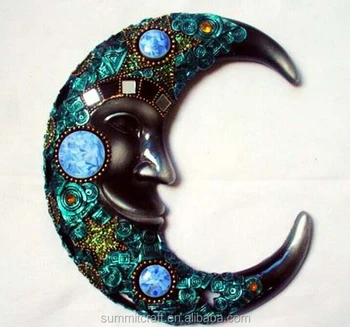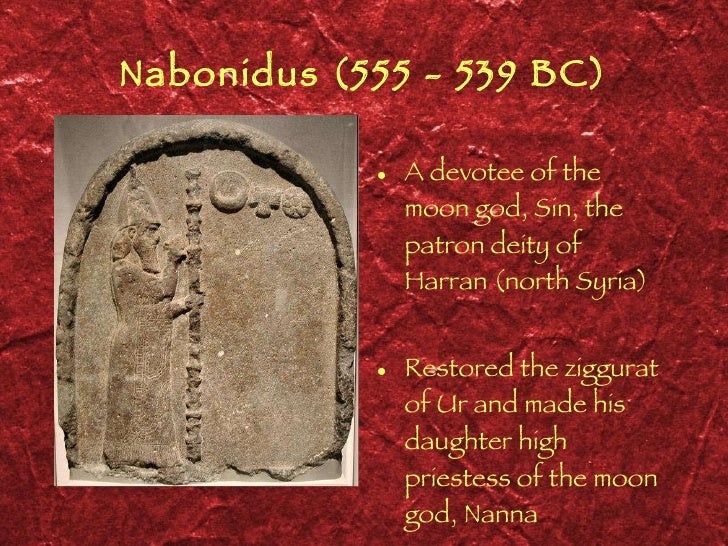Sunday Special- Woh Patthar hai Bhagwaan nahi.n!
Moon God

Although the moon has
not had great prominence in the history of religion, the worship of it
has been known since earliest recorded time—in the oldest literatures of
Egypt, Babylonia, India, and China—and still
exists today in various parts of the world, particularly among certain
African and Native American groups.

Moon worship is
founded on the belief that the phases of the moon and the growth and
decline of plant, animal, and human life are related. In some societies
food was laid out at night to absorb the rays of the
moon, which were thought to have power to cure disease and prolong
life. Among the Baganda of central Africa it was customary for a mother
to bathe her newborn child by the light of the first full moon. The moon
was frequently equated with wisdom and justice,
as in the worship of the Egyptian god Thoth and the Mesopotamian god
Sin.

In general, however,
the moon has been the basis for many amorous legends and some
superstitions madmen were once considered to be moonstruck, hence the
term lunatic and is particularly important in the practice
of astrology.

Many ancient peoples
regarded the Moon as the chief of the two luminaries. “The sun was of
smaller importance than the moon in the eyes of the Babylonian
astrologers.”
The Assyrians and the
Chaldeans referred to the time of the Moon-god as the oldest period in
the memory of the people: before other planetary gods came to dominate
the world ages, the Moon was the supreme deity.
Such references are found in the inscriptions of Sargon II (ca.
-720)(2) and Nabonidus (ca. -550).(3) The Babylonian Sin—the Moon—was a
very ancient deity: Mount Sinai owes its name to Sin.
The Moon-god, Mah, within a crescent moon, seated above. Silver-gilt plate, Sasanian/Persian, 225–630CE
The Kaaba originally a PAGAN Temple!!!
The Kaaba is supposedly the centre of all religious importance in islam, their most sacred site, being the focus of the most sacred “islamic pilgrimiage”. How surprising, then, that this is actually in fact a PAGAN Temple built originally for the worship of Pagan Gods.It was said that the walls of the Kaaba were originally engraved with names and symbols of various Pagan Gods, including the God known by the title “AlÍlah”, who was the Mesopotamian Moon God Sin aka Nanna. His symbol was the crescent Moon and Star:

The religion of Islam has as its focus of worship a deity by the name of
"Allah." The
Muslims claim that Allah in pre-Islamic times was the biblical God of
the Patriarchs, prophets, and apostles. The issue is thus one of
continuity. Was
"Allah" the
biblical God or a pagan god in Arabia during pre-Islamic times? The
Muslim's claim of continuity is essential to their attempt to convert
Jews and Christians
for if "Allah" is
part of the flow of divine revelation in Scripture, then it is the next
step in biblical religion. Thus we should all become Muslims. But, on
the other
hand, if Allah was a pre-Islamic pagan deity, then its core claim is
This is the only way to find out the truth concerning the origins of
Allah. As we shall see, the hard evidence demonstrates that the god
Allah was a pagan deity. In fact, he was the Moon-god
who was married to the sun goddess and the stars were his daughters.
The Archaeology of the Middle East
The religion of Islam has as its focus of worship a deity by the name of “Allah.”
شَهْرُ رَمَضَانَ الَّذِيَ أُنزِلَ فِيهِ الْقُرْآنُ هُدًى لِّلنَّاسِ وَبَيِّنَاتٍ مِّنَ الْهُدَى وَالْفُرْقَانِ
Ramadan is the most sacred month of the year for Muslims — the
Prophet Mohammed reportedly said, "When the month of Ramadan starts, the gates of heaven are opened
and the gates of hell are closed and the devils are chained."
Muslims believe it was
during this month that God revealed the first verses of the Quran,
Islam's sacred text, to Mohammed, on a night known as "The Night of
Power" (or Laylat al-Qadr in Arabic).[Al
Baqarah, 2:185]


Chandra (Sanskrit:
चन्द्र,
IAST:
Candra,
lit. "shining" or "moon") is a
lunar deity and is also one of the nine houses (Navagraha)
in Hinduism. Chandra is synonymously referred to as
Soma. Other names include
Indu (bright drop),
Atrisuta (son of Atri),
Sachin (marked by hare),
Tārādhipa (lord of stars) and
Nishakara (the night maker).

Hindu Ladies break their Karva Chauth' Varat (Fast) only after having 'Darshan' of their God Chanderma!

Buzz Aldrin; January 20, 1930) is an American
engineer, former
astronaut, and
Command Pilot in the
United States Air Force. As
Lunar Module Pilot on the
Apollo 11 mission, he and mission commander
Neil Armstrong were the first two humans to
land on the Moon. Aldrin set foot
on the Moon at 03:15:16 on July 21, 1969 (UTC),
9 minutes after Armstrong first touched the surface.
"Everyone has their firsts on the moon, and that one hasn't been disputed by anybody," he said in the 2007 documentary
In the Shadow of the Moon.
It's also undisputed that Aldrin was the second man to moonwalk—about 15 minutes after Neil Armstrong—though he's still a bit embarrassed about his fumbling attempt to reboard the Eagle lander.
"I jumped what I thought was going to be enough to get up to the bottom rung of the ladder, and I didn't jump hard enough the first time, so I had to go back and do it again," Aldrin told National Geographic News.
Buzz Aldrin may not have been the first man on the moon, but he's got another historic first under his belt, so to speak: first person to pee on the moon.
Our God since times immemorial was insulted by these two men not only by setting their feet on our holy deity without removing their shoes on the, but also Urinating on the diety and the whole World is silent! Anyway we will not stop worshiping our God come what may!
|
www.youtube.com
NASA's Goddard Space Flight Center and the Lunar Reconnaissance Orbiter
present to you a short, narrated Science on a Sphere show depicting the
evolution of our moon ...
|
||
Searched,Compiled and Illustrated by Tejinder Kamboj
Comments
Post a Comment